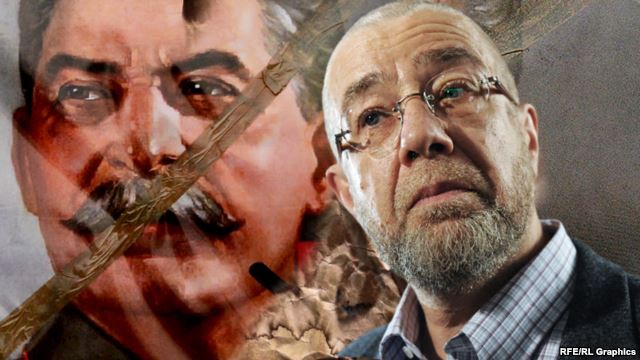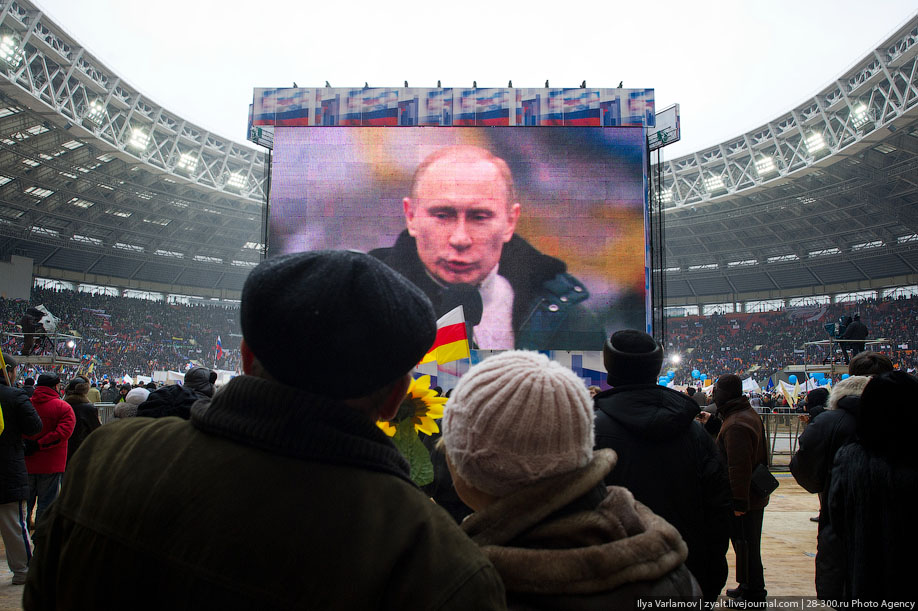The post-Soviet states are currently supplying 7,000 of the 30,000 foreigners who have gone to Syria to fight for ISIS, according to Yevgeny Sysoyev, the deputy director of the FSB; with a large share of these coming from Muslim regions in the Russian Federation itself.
On the one hand, he told a Sochi security meeting yesterday, that is one reason that terrorist activity inside Russia has declined over the last several years. But on the other, these numbers show that ISIS is now successfully targeting Muslims in the post-Soviet space for recruitment and thus creating a serious threat for the future.
Sysoyev did not address the reasons why ISIS has been so successful, but there are at least three that many commentators have pointed to in the past:
- First, Soviet anti-religious efforts left many in Russia and the post-Soviet states knowing that they were Muslims but not what that meant, opening the way for outsiders to provide content.
- Second, the collapse of the Iron Curtain to the south of the former Soviet space has meant that radical Muslim missionaries have come to the post-Soviet space and Muslims from these countries have traveled abroad for training and in some cases radicalization in madrassahs and Islamic universities.
- And third, both repressive actions by governments – including Moscow’s “anti-terrorist” campaigns in Chechnya – and authoritarian but corrupt and weak officials in them have behaved in ways that have convinced many Muslims in these countries that the radicals are right when they denounce the regimes there.
Yesterday, however, one of Russia’s leading specialists on Islam, Aleksey Grishin, the president of the Religion and Society Analytic and Information Center, pointed to other failures by Russian officials that in his words are “in fact helping the Islamists” to recruit Muslims.
In an interview published in “Moskovsky komsomolets,” Grishin said that unfortunately, many of the Russian officials in Moscow and in the regions responsible for relations with Islam know so little about the religion that extremists are able to twist them around their fingers and in fact get the Russian state to finance and otherwise support what are extremist activities.
Islamist radicals understand this perfectly, and they routinely come to these officials and propose cooperation. The officials out of ignorance or in some cases out of corrupt considerations agree, the expert says, and as a result, the extremists are integrated into and supported by the state.
As a result, “Islamist organizations of the most doubtful kind conduct on [Russian] territory at [state] expense forums, print extremist literature and conduct under subversive activity against the foundations of the state,” Grishin says.
The Islamists are further assisted in their work by two other features of the Islamic community in Russia – the great age of the majority of rural mullahs and imams and the multiplicity of and competition among the Muslim spiritual directorates (MSDs).
“Almost three quarters of rural imams in Muslim regions of Russia are elderly, older than 70 or 75. The extremists use this. They appear in the villages, gain the trust of the elderly imams, offer to help them, read prayers, and provide regular assistance” to the indigenous Muslim community.
That allows them to disseminate their extremist materials via the mosques. And “when the imam dies, who replaces him? Of course, these people. The local authorities don’t try to stop it, after all, this individual has been helping for a long time and is well known … As a result, a direct path for extremist ideas is opened to the hearts of Russians.”
The multiplicity of MSDs is another avenue that the extremists can and do exploit, Grishin says. There are 81 MSDs in Russia, even though in the majority of Arab countries, there is only one mufti per country. The excessive number in Russia “means that there is no unity” of views on any question, and that allows the extremists to claim the right to push their positions.
In some cases, the extremists have taken over particular MSDs, something allowing them to print various books and pamphlets, “various translations of the Koran, including Wahhabi versions,” and then use them to convince ordinary Muslims that what they are promoting is pure Islam.
Although religion is separate from the state in Russia, the authorities “nevertheless want to keep their hand on the pulse” of the faithful, not to control the faith but to prevent the penetration “into the religious milieu of unhealthy ideas and attitudes from the outside,” Grishin said.
To that end, in 2006, the Kremlin established a Foundation for the Support of Islamic Culture, Science and Education. But that group, Grishin says, especially under its current head, Mikhail Belousov, has done more harm than good. Indeed, “his activity has acquired extremely dangerous forms,” the expert continued.
Grishin gives as an example of this harm the adoption by the Foundation earlier this year of “a completely insane document, ‘The Social Doctrine of Russian Muslims.’” Instead of reiterating and reaffirming traditional Islamic values, it promotes radical notions foreign to Russian Islam.
That should not have surprised anyone given who wrote this document: Vyacheslav Ali Polosin, a former Russian Orthodox priest who converted to Islam and has adopted the radical views often found among recent converts. He inserted ideas from works that have been prohibited in Russia – and thus got an official imprimatur for them by the back stairs.
In some cases, the doctrine pushed ideas so radical that ISIS looks moderate by comparison, and that may have been Polosin’s intent. After all, if a young Russian Muslim reads this document and then compares its provisions with those of ISIS, he might well choose the latter.
The Foundation has subverted the interests of the Russian state in other ways. It has promoted the introduction of radical Islamist texts into Russian prison libraries after supposedly vetting them. The jailers don’t know enough about Islam to say no and as a result, radicalism spreads. And the blessing of the Foundation of certain Islamic educational institutions in Russia has meant that government money has flowed to them even though they have no students or researchers. One can only imagine, Grishin says, where such funds actually end up.





